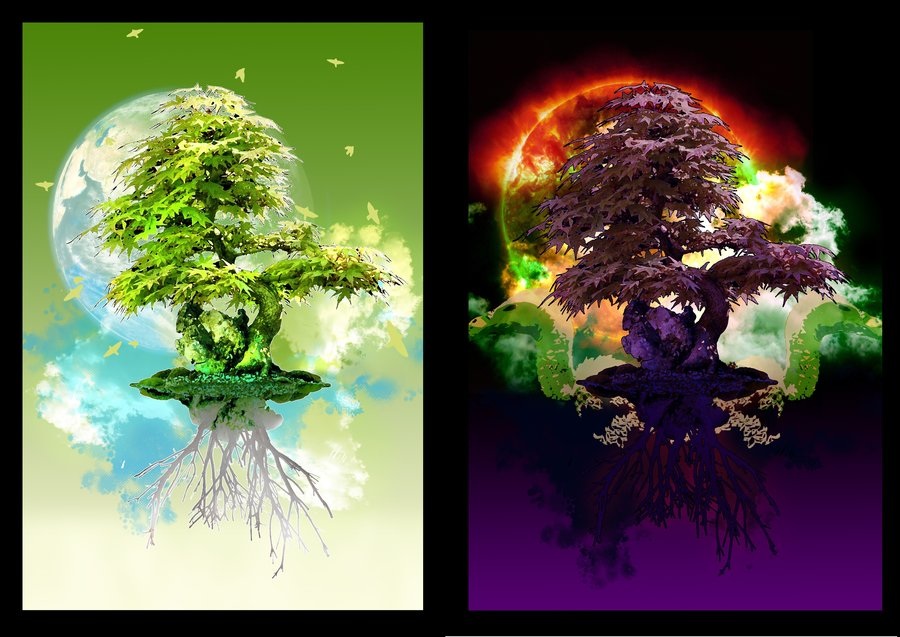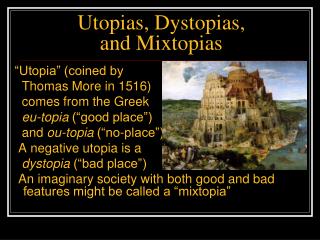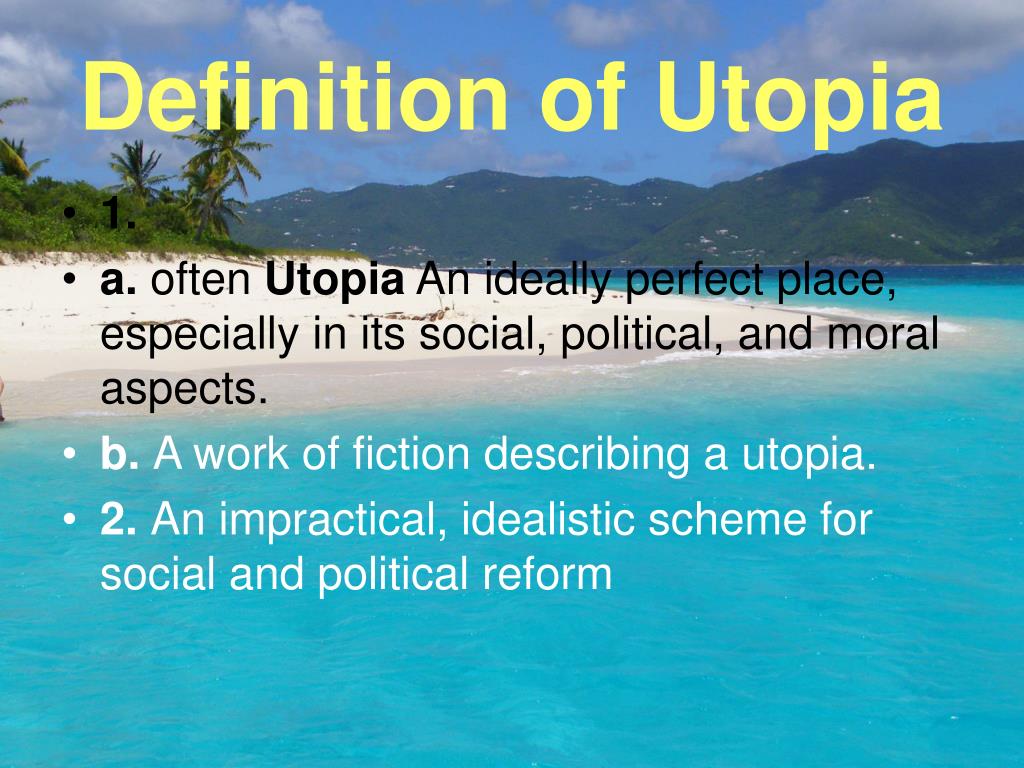

Budakov, “ Dystopia: An Earlier Eighteenth-Century Use.” Notes and Queries 57.1 (March 2010): 86-88. On the contrast between the two versions, see V M. The poem was reprinted in The Gentleman’s Magazine and Historical Chronicle 18 (September 1748): 399-402 with the word spelled “Dystopia” on pages 400 and 401 and with a footnote on 400 defining the word as “an unhappy country”.

by George Faulkner) spelled as “dustopia” and used as a clear negative contrast to utopia on pages 4, 6, and 21. Deirdre Ni Chuanacháin noted a 1747 use by Henry Lewis Younge in his Utopia or Apollo’s Golden Days (Dublin: Ptd.

Max Patrick’s anthology The Quest for Utopia (New York: Henry Schuman, 1952), where they say “The Mundus Alter et Idem is utopia in the sense of nowhere but it is the opposite of eutopia the ideal society: it is a dystopia, if it is permissible to coin a term” (248), but there were much earlier uses. The first use of this word is sometimes ascribed to Glenn Negley and J. Intentional communityĪ group of five or more adults and their children, if any, who come from more than one nuclear family and who have chosen to live together to enhance their shared values or for some other mutually agreed upon purpose. The flawed utopia is a sub-type that can exist within any of these sub-genres. The flawed utopia tends to invade territory already occupied by the dystopia, the anti-utopia, and the critical utopia and dystopia. Works that present what appears to be a good society until the reader learns of some flaw that raises questions about the basis for its claim to be a good society, or even turns it into a dystopia. Critical dystopiaĪ non-existent society described in considerable detail and normally located in time and space that the author intended a contemporaneous reader to view as worse than contemporary society but that normally includes at least one eutopian enclave or holds out hope that the dystopia can be overcome and replaced with a eutopia. The work also normally takes a critical view of the utopian genre. Critical utopiaĪ non-existent society described in considerable detail and normally located in time and space that the author intended a contemporaneous reader to view as better than contemporary society but with difficult problems that the described society may or may not be able to solve. Anti-utopiaĪ non-existent society described in considerable detail and normally located in time and space that the author intended a contemporaneous reader to view as a criticism of utopianism or of some particular eutopia. Utopian satireĪ non-existent society described in considerable detail and normally located in time and space that the author intended a contemporaneous reader to view as a criticism of that contemporary society. Dystopia or negative utopiaĪ non-existent society described in considerable detail and normally located in time and space that the author intended a contemporaneous reader to view as considerably worse than the society in which that reader lived. Eutopia or positive utopiaĪ non-existent society described in considerable detail and normally located in time and space that the author intended a contemporaneous reader to view as considerably better than the society in which that reader lived. In standard usage utopia is used both as defined here and as an equivalent for eutopia (below). UtopiaĪ non-existent society described in considerable detail and normally located in time and space. Social dreaming-the dreams and nightmares that concern the ways in which groups of people arrange their lives and which usually envision a radically different society than the one in which the dreamers live. The major definitions used throughout the bibliography.


 0 kommentar(er)
0 kommentar(er)
